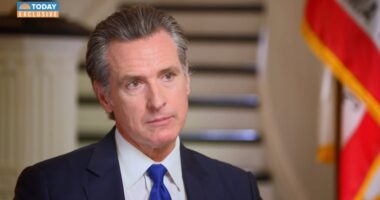
WASHINGTON—The Biden administration is expected to outline new measures Tuesday to address widespread supply-chain issues, with a goal of bringing manufacturing back to the U.S. and diversifying access to foreign-made materials such as rare-earth minerals used for batteries.
The steps, which include the creation of a new government supply-chain task force, are the result of a 100-day review that President Biden ordered in February, as the pandemic exposed problems that continue to affect key industries, including auto making.
The review covers four areas: semiconductors, used in products from cars to phones; large-capacity batteries used in electric vehicles; pharmaceuticals and rare-earth elements that are key to technology and defense.
“While amplified by the public-health and economic crisis, decades of underinvestment and public-policy choices led to fragile supply chains across a range of sectors and products,” says a White House document that summarized the reviews’ findings that was shared with reporters Monday. “At the same time, the reviews find that the United States is well positioned to maintain and strengthen our innovative leadership and rebuild our productive capacity in key sectors and value chains.”
The secretaries of commerce, transportation and agriculture will make up a new supply-chain task force focused on sectors that have experienced supply disruptions and demand issues, including home-building and construction, semiconductors, transportation and foods, officials said.
Additional details about the supply-chain review are expected to be released later Tuesday but it specifically calls for the following:
• Using the Defense Production Act, enacted during the Korean War to spur domestic industry to shore up the military, to form a public-private consortium for essential-medicine production. The Department of Health and Human Services will initially spend $60 million toward that goal.
• Tapping the Energy Department’s loan authority to invest in production of advanced vehicle battery cells and to establish new manufacturing plants.
• Establishing a “trade strike force” that will propose enforcement actions against what the administration says are unfair foreign-trade practices, such as government subsidies, that have eroded critical supply chains and shore up cooperation with allies.
• Proposing a financing program under the U.S. Export-Import Bank for U.S. manufacturing facilities and infrastructure projects.
Another measure calls for the Commerce Department to begin an investigation that could lead to tariffs on neodymium magnets, which are used in motors and defense equipment and are largely imported from China.
The administration is also seeking to address the semiconductor shortage, which has caused production slowdowns, from appliances to computers, with auto makers being the most prominent to feel the squeeze. Ford Motor Co. , General Motors Co. and Stellantis NV, maker of Jeep and Chrysler, have all pressed the government for help, though short-term government solutions have been elusive.
Chips are used in vehicle braking systems, touch screens and numerous other components. But they are also in high demand for consumer electronics and other products that became popular with people forced to stay home during the pandemic.
Mr. Biden has proposed a $50 billion investment in the American semiconductor industry, which has shifted much production overseas, as part of his infrastructure proposal that has run into opposition from congressional Republicans over the size and the taxes needed to pay for it. But the industry could also get help from China-related legislation that the Senate is poised to vote on Tuesday afternoon.
Mr. Biden is set to depart on his first foreign trip this week and intends to bring up supply-chain issues in talks with European leaders, White House officials said. While much of the focus is bringing manufacturing to the U.S., the administration says it is also critical to strengthen ties with allies to alleviate the reliance on geopolitical competitors such as China.
Write to Alex Leary at [email protected]
Copyright ©2020 Dow Jones & Company, Inc. All Rights Reserved. 87990cbe856818d5eddac44c7b1cdeb8
This post first appeared on wsj.com








